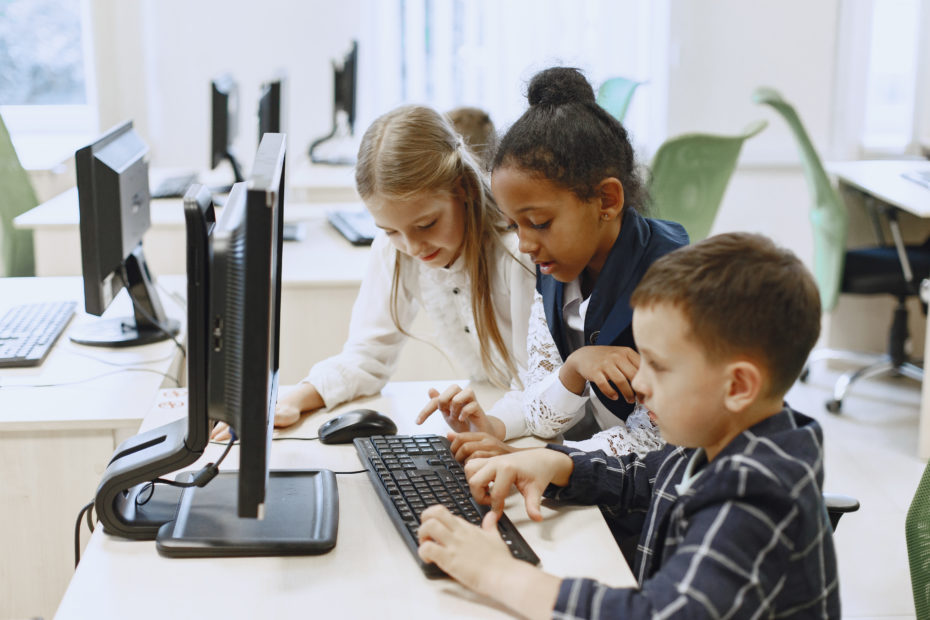Educational games are an excellent way to promote learning. Not only are games fun and entertaining, but they also help children develop cognitive, emotional and social skills. Furthermore, the benefits of educational games are not limited to our childhood, they continue to have a significant impact right through to adulthood. In this article, we will look at some of the benefits of educational games for children and the effect they have on adulthood.
Cognitive Development
Educational games help develop important cognitive skills, such as attention span, memory recall and problem solving. These skills are key to achieving academic and career success in adulthood. Educational games can help improve a child’s focus and ability to concentrate, which can have a very positive impact on them being able to concentrate on their work or studies. In addition, educational games can help improve our long-term memory, which can be useful for remembering important information at work or in higher education.
Educational games can also help develop problem-solving skills. Children learn to deal with challenges and find creative solutions to overcome them. These skills are very valuable in the workplace, where we need to be able to solve problems efficiently and effectively.
Emotional Development
Educational games can also have a significant impact on the emotional development of young children. Educational games can help develop social skills such as cooperation and effective communication. These skills are important for interpersonal relationships in adulthood, both in the workplace and in personal life.
In addition, educational games can help develop empathy and compassion. Educational games which encourage collaboration and teamwork can help children understand the needs of others and develop the ability to put themselves in others’ shoes. These skills can be useful in the workplace, where the ability to work well with others is vital for success.
Social Development
As mentioned previously, educational games can help develop important social skills, such as cooperation and effective communication – fundamental to interpersonal relationships in adulthood, both in the workplace and in personal life. Educational games which encourage collaboration and teamwork can help children understand the needs of others and develop the ability to work well with others.
In addition, educational games can help develop important social skills such as effective communication and conflict resolution. Children learn to express ideas clearly and effectively, which can be useful in both professional and personal situations. What’s more, educational games which encourage conflict resolution can help children learn to deal more effectively with disagreements.
Impact on Adulthood
On top of providing cognitive, emotional and social benefits in our childhoods, educational games can also have a significant impact on adulthood. Adults who played educational games as children may be better equipped to deal with certain challenges later in life.
For example, adults who played educational games which promoted problem solving may be better equipped to deal with difficult situations in the workplace or in their personal lives. In addition, adults who played educational games which encouraged cooperation and teamwork may have stronger social skills and therefore be more capable in group situations.
Adults who played educational games as children may also be better equipped to learn and acquire new skills in adulthood. Educational games can help develop acquisition skills and curiosity in children, which can be useful for learning new skills or acquiring new knowledge in adulthood. What’s more, adults who enjoyed educational games as children are more likely to have a positive attitude towards learning and exploration, keeping ourselves better informed and enriching both our professional and personal lives.
It is important to note that receiving the benefits of educational games in adulthood is not only limited to those who played educational games as children. Adults can also benefit from playing educational games in adulthood, whether board games, strategy games or online games. These games provide a fun and effective way for us to continue to develop our cognitive, emotional and social skills.
In conclusion, educational games are an excellent way to promote learning in children. In addition to the cognitive, emotional and social benefits that educational games can provide in childhood, they can also have a significant impact on adulthood. Adults who played educational games as children may be better equipped to tackle challenges in adult life and maintain a positive attitude towards learning and exploration. Educational games are therefore a valuable investment in children’s cognitive and emotional development, as well as contributing to their success and well-being as an adult.





